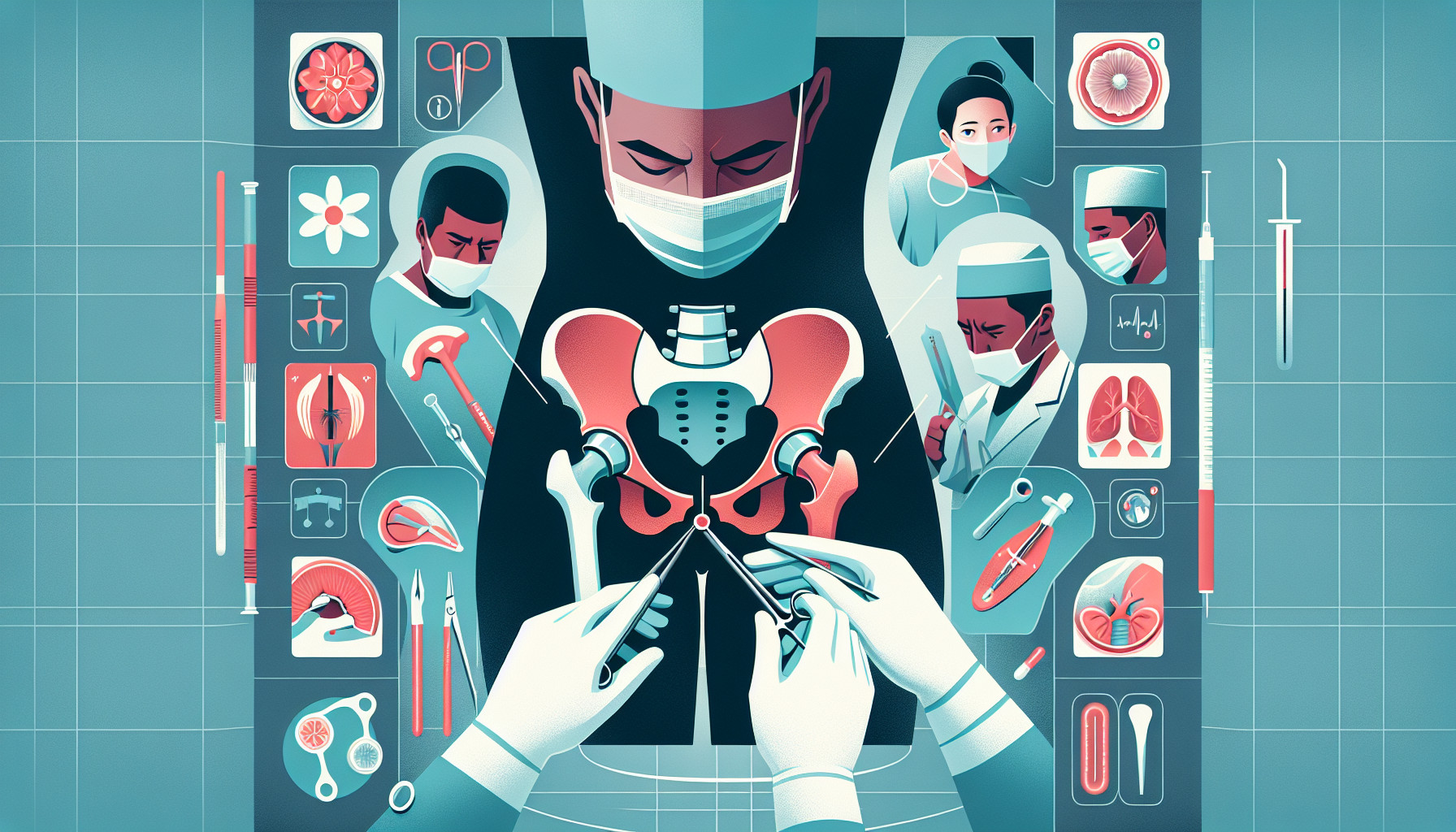Our Summary
This study looked at how well patients recovered after getting either a hip or knee replacement. The researchers also wanted to see if they could find any patterns or factors that might predict how well someone might recover. They found that patients who got hip replacements recovered better, in terms of pain, than those who got knee replacements. They also found that patients who were feeling negative emotions before surgery didn’t recover as well. Patients who felt like they knew what to expect from the surgery and recovery process didn’t necessarily recover better, but those who were more satisfied with their care did. The study suggests that healthcare providers should pay attention to patients’ emotional states before surgery, as it could impact their recovery.
FAQs
- Did the study find any difference in recovery between hip and knee replacement patients?
- How do pre-surgery emotions affect the recovery process after hip or knee replacement?
- Does knowing what to expect from the surgery and recovery process improve patient outcomes?
Doctor’s Tip
One helpful tip a doctor might tell a patient about hip replacement is to focus on maintaining a positive mindset and emotional well-being before and after surgery. This can help with the recovery process and overall outcome. It is also important to have realistic expectations about the surgery and recovery process, and to communicate openly with your healthcare team about any concerns or questions you may have. Additionally, following post-operative instructions, attending physical therapy sessions, and staying active within the limitations set by your healthcare provider can also aid in a successful recovery.
Suitable For
Patients who are typically recommended for hip replacement surgery are those who have severe hip pain that limits their daily activities, have not experienced relief from other treatments such as medication or physical therapy, have arthritis or other degenerative joint diseases, have a hip fracture or injury, or have a hip deformity. Additionally, patients who are generally healthy and able to tolerate surgery are also good candidates for hip replacement. It is important for individuals considering hip replacement to consult with their healthcare provider to determine if they are a suitable candidate for the procedure.
Timeline
Before hip replacement:
- Patient experiences hip pain and limited mobility
- Patient visits a doctor and is diagnosed with severe arthritis or other hip condition
- Doctor recommends hip replacement surgery
- Patient undergoes pre-operative tests and evaluations
- Patient and doctor discuss risks, benefits, and expectations of surgery
After hip replacement:
- Patient undergoes hip replacement surgery
- Patient spends a few days in the hospital recovering
- Patient begins physical therapy and rehabilitation to regain strength and mobility
- Patient gradually increases activity level and resumes daily tasks
- Patient attends follow-up appointments with doctor to monitor progress
- Patient experiences decreased hip pain and improved mobility
- Patient adjusts to life with a new hip joint and continues to engage in physical therapy and exercise for optimal recovery.
What to Ask Your Doctor
- What are the potential risks and complications associated with hip replacement surgery?
- What type of hip replacement surgery is recommended for my specific condition?
- What is the expected recovery time and rehabilitation process after hip replacement surgery?
- What are the expected outcomes in terms of pain relief and improved mobility after hip replacement surgery?
- How long can I expect the hip replacement to last before needing revision surgery?
- What are the lifestyle modifications or precautions I should take after hip replacement surgery?
- Are there any alternative treatments or non-surgical options that could be considered before undergoing hip replacement surgery?
- What is the success rate of hip replacement surgery for patients with similar conditions to mine?
- How experienced is the surgical team in performing hip replacement surgeries?
- What can I do to optimize my overall health and fitness before undergoing hip replacement surgery to improve my recovery outcomes?
Reference
Authors: Johansson Stark Å, Charalambous A, Istomina N, Salanterä S, Sigurdardottir AK, Sourtzi P, Valkeapää K, Zabalegui A, Bachrach-Lindström M. Journal: J Clin Nurs. 2016 Sep;25(17-18):2489-501. doi: 10.1111/jocn.13278. Epub 2016 Jun 6. PMID: 27264877
